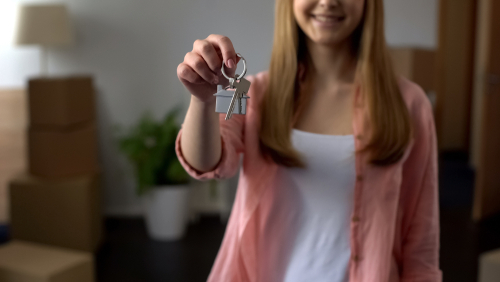The transition to living independently can be scary, but statistics show that it leads to success. According to the Journal of Substance Use, the legal system refers to up to 25% of people in sober living homes. Nearly a quarter went through family or friends.
Residents who stayed in sober living homes for at least six months had over a 70% chance of maintaining their sobriety for the following year. Making the move to your place is a big step, but with the right mindset and support system, you’ve got this!
In this article, we will discuss what independent housing is and the best ways to transition into your own place after addiction treatment.
What is Independent Housing?
Independent housing, or independent living, in addiction recovery, refers to the process by which individuals who have struggled with substance abuse or addiction gain the skills, confidence, and self-reliance necessary to lead a fulfilling and substance-free life. It’s an essential aspect of long-term recovery and often follows the completion of formal addiction treatment programs, such as inpatient or outpatient rehabilitation.

How to Transition into Your Own Place
Transitioning into your own place is an exciting and significant step toward independence and self-sufficiency. A place of your own means freedom and a fresh start. However, it may be overwhelming to go from living in an addiction treatment center or outpatient rehab to independent living. By carefully planning, budgeting, and adapting to the new responsibilities of independent living, you can create a safe and comfortable home that reflects your values and aspirations. Some other things that can help individuals transition smoothly include maintaining their usual schedule, embracing the journey, and not rushing the process.
Maintain Your Usual Schedule
Once you’ve moved in, stick to your normal routine as much as possible. This may look like:
- Wake up at the same time every day and go to bed at the same time, even on weekends. By having a predictable pattern, this will help you adjust to living solo.
- Keep up with chores and errands. Do laundry, grocery shop, pay bills, etc., on your usual schedule. The familiarity will make the transition smoother.
- Connect with others daily. Call friends or family, or get together in person. Make new connections with neighbors. Social interaction and support will help combat loneliness.
- Take care of yourself. Cook healthy meals, exercise, engage in hobbies, and relax. Your physical and mental well-being are essential, especially during life changes.
Maintaining normalcy in your new place will help it feel like home in no time. Staying on schedule and nurturing yourself and your relationships will set you up for success in your independent living adventure.
Embrace the Journey
Once you’ve found your new place, it’s time to embrace this new chapter of independence. Start by exploring your neighborhood to find essential spots like grocery stores, coffee shops, and parks. Discovering your surroundings helps make the unfamiliar familiar.
Unpack slowly to avoid feeling overwhelmed. Do a little bit each day rather than rushing to immediately get everything out of boxes. Make your space cozy by adding personal touches like photos, art, books, and decorations that reflect your style.
Enjoy the freedom of independence, but don’t hesitate to ask others for help if you need it. Though it may feel strange initially, embrace living alone as an opportunity to learn and grow into your own. With time, your new place will start to feel like home.

Don’t Rush It
Moving into your first independent place is a big step, so take your time. Don’t feel pressure to sign a lease immediately or move in before you’re ready. Make a plan to transition gradually:
- Start by spending a few nights a week at your new place to get used to the space and responsibilities. Stay for a long weekend to do everyday tasks like cooking, cleaning, and errands.
- Ask a friend or family member to be your “move-in buddy” for support. Have them stay over at first and work through any challenges together. Their familiar company can help you adjust.
- Don’t feel like you have to furnish and decorate immediately fully. Add furnishings and personal touches slowly over time as you get settled in. Make your new space feel like home at your own pace.
Moving into your first solo place is exciting but also stressful. Be gentle with yourself and remember that adapting to significant life changes takes time. Stay positive and patient through the process. When the timing feels right for you, take a deep breath and enjoy your newfound independence!
Start Your Recovery Today
The journey to independent living begins with that first step out the door. Your recovery will be an ongoing process, but establishing your place is a significant milestone.
Don’t feel overwhelmed by all that needs to be done. Focus on essentials like securing income and housing. Look for part-time work or apply for assistance programs. See if you can stay with a friend or family member temporarily. Start building the foundation, and the rest will come together.
Recovery is a lifelong journey. There will be challenges, but you have the strength and skills to navigate them. Reach out for help when you need it. Be patient with yourself and celebrate each victory. One day at a time, you will adjust to living independently again.
Call Riviera Recovery today at 855-207-9708. Our caring team will help you access resources and provide guidance for your new beginning. You don’t have to do this alone.


